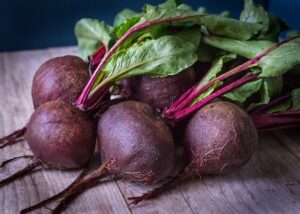
Agroholding TAS Agro has completed its spring sowing campaign for 2025, during which it sowed about 40,000 hectares with spring crops, the company’s press service reported on Facebook.
According to the agricultural holding, 16,000 hectares of the production area are allocated to sunflowers, 15,000 hectares to soybeans, 7,000 hectares to corn, and 160 hectares to industrial hemp. The company noted that this year it reduced corn sowing, abandoned sugar beet cultivation, but began growing industrial hemp on a trial basis.
“The 2025 sowing season is significantly different from previous ones, primarily due to abnormal weather conditions and constant air raid alerts, which hampered the work of machinery. Snow cover in April and frosts in the first ten days of May slowed down the sowing campaign somewhat, but we adjusted the work of the production units and managed to complete it on time. This year’s sowing season has shown that we have chosen the right strategy of renewing our technical fleet and involving our own staff, who worked cohesively and responsibly despite all the above-mentioned difficulties. In particular, on some days we managed to sow 2.3 thousand hectares per productive day,” said Oleg Zapletnyuk, CEO of TAS Agro LLC.
He added that the agricultural holding has already received high-quality spring crops and is focused on protecting them from diseases and pests. Personnel not involved in current work are preparing for the harvest, which, according to preliminary forecasts, will start in a month.
TAS Agro was established in 2014. Its land bank includes 88,000 hectares in the Chernihiv, Sumy, Kyiv, Vinnytsia, Kirovohrad, and Mykolaiv regions. It specializes in crop production, with the agricultural holding’s elevator capacity amounting to about 250,000 tons. The livestock business is represented by a herd of 5,500 head of cattle, of which 2,500 are dairy cattle.
The agricultural holding is part of the TAS group, founded in 1998. Its business interests include the financial sector (banking and insurance segments) and pharmacies, as well as industry, real estate, and venture projects.
The founder of TAS and beneficiary of the TAS Agro agricultural holding is Serhiy Tihipko.
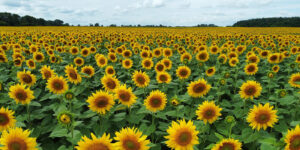
Agroholding Agraine has completed its 2025 spring sowing campaign, during which it sowed over 27,000 hectares with spring crops, the company’s press service reported on Facebook.
According to the report, corn took up most of the planned area, with 14,000 hectares, and sunflowers took up over 12,000 hectares.
Thanks to moisture retention and thorough soil preparation, the group of companies achieved optimal moisture at the sowing depth. In addition, this year, farmers chose drought-resistant corn and sunflower hybrids, focusing on stable yields despite the lack of rainfall.
“We reduced the density of corn sowing to better adapt to limited moisture. Thanks to the coordinated work of our teams, we were able to complete sowing ahead of schedule,” said Taras Kornienko, chief agronomist of the agricultural holding.
Agrain is engaged in the cultivation and storage of grain and oilseeds, as well as livestock farming. Before the full-scale Russian invasion, the agricultural holding company comprised 11 agricultural enterprises. It cultivated about 110,000 hectares in the Zhytomyr, Kharkiv, Chernihiv, Odesa, and Cherkasy regions.
The holding company is owned by SAS Investcompagnie (France).
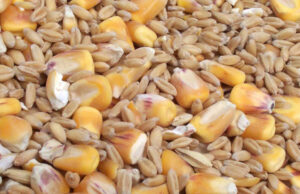
The US Department of Agriculture (USDA) has published its first forecast for grain exports from Ukraine for the 2025/26 marketing year (MY): it expects wheat exports to grow to 16.5 million tons from 16 million tons in 2024/25 MY and corn exports to grow to 24 million tons from 22 million tons.
According to the forecast on the US agency’s website, this year’s wheat harvest in Ukraine will decrease slightly to 23 million tons from 23.4 million tons last year, while domestic consumption will decline to 6.6 million tons in this MY from 6.7 million tons in the previous MY, with carryover stocks remaining at 1.49 million tons.
As for corn, the USDA expects its harvest to increase to 30.5 million tons from 26.8 million tons last year, as well as an increase in domestic consumption to 6.23 million tons from 5.15 million tons and carryover stocks from 0.31 million tons to 0.6 million tons.
According to the US Department of Agriculture, the total harvest of feed crops this year will amount to 37.04 million tons, compared to 33.47 million tons last year, and their exports in 2025/26 MY will reach 27.58 million tons, up from 24.48 million tons in 2024/25 MY.
Overall, the USDA expects wheat harvests to increase this year to 808.5 million tons from 799.7 million tons last year, and corn harvests to increase to 1,265.0 million tons from 1,221.3 million tons.
As for wheat exports, according to the US Department of Agriculture, in 2025/26 MY, they will increase to 212.99 million tons from 206.12 million tons this MY, and corn exports will increase to 195.81 million tons from 189.35 million tons.
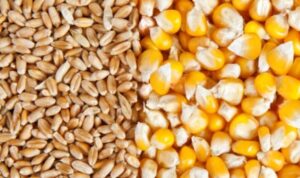
Ukraine has exported 35.093 mln tonnes of grains and pulses since the beginning of 2024-2025 marketing year (MY, July-June) as of April 30, of which 2.269 mln tonnes were shipped since the beginning of the month, the press service of the Ministry of Agrarian Policy and Food reported, citing the State Customs Service.
According to the report, as of April 29 last year, the total shipments amounted to 40.711 million tons.
At the same time, since the beginning of the current season, Ukraine has exported 13.873 mln tonnes of wheat (15.55 mln tonnes in 2023/24 MY), 2.264 mln tonnes of barley (2.181 mln tonnes), 10.8 thsd tonnes of rye (1.2 thsd tonnes) and 18.437 mln tonnes of corn (22.502 mln tonnes).
The total export of Ukrainian flour since the beginning of the season as of April 30 is estimated at 58.4 thsd tonnes (86 thsd tonnes in 2023/24 MY), including 54.2 thsd tonnes of wheat (81.3 thsd tonnes).
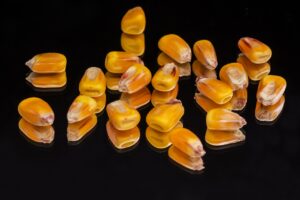
The farms of the Agrain group of companies have completed corn sowing on 70% of the planned area, which will be allocated over 14,000 hectares in the 2025 season, the agricultural holding’s press service reported on Facebook.
“This year, we paid special attention to the selection of hybrids that demonstrate not only high yield potential but also good adaptability to local climatic conditions and increased drought resistance. These are key criteria in conditions of unstable moisture,” the agricultural holding said.
To ensure the effectiveness of the sowing campaign, Agrain farms use high-precision Horsch Maestro 24.70SW and Kinze 3600 seeders with the Precision Planting system. This equipment provides farmers with 100% seed separation, uniform planting depth, and soil moisture retention.
“We sow corn to a depth of 5 cm at a rate of 65-74 thousand seeds per hectare. At the same time, we apply nitrogen fertilizers: 50 kg/ha of urea or 70 kg/ha of UAN,” the agricultural holding summarized.
Agrain is engaged in the cultivation and storage of grain and oilseeds, as well as livestock farming. Before the full-scale Russian invasion, the agricultural holding consisted of 11 agricultural enterprises. It cultivated about 110,000 hectares in the Zhytomyr, Kharkiv, Chernihiv, Odesa, and Cherkasy regions.
The holding company is owned by SAS Investcompagnie (France).
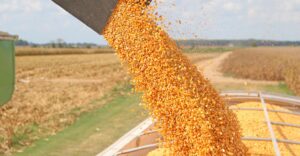
The Ministry of Agrarian Policy and Food, together with the international company Bayer and the All-Ukrainian Association of Communities, has launched a seed program that will provide free corn seeds for the spring sowing season to farmers in Donetsk, Zaporizhzhia, Sumy, Kharkiv and Chernihiv regions (excluding the temporarily occupied territories).
“This initiative is another step towards strengthening Ukraine’s food security in times of war, as it will allow farmers from the frontline and de-occupied territories to sow approximately 10 thousand hectares and harvest approximately 120 thousand tons of grain,” the Ministry of Agrarian Policy emphasized.
According to the ministry, to receive assistance, a farm must be registered in the State Agrarian Register (SAR) and cultivate from 5 hectares to 500 hectares in the specified areas.
Applications will be accepted from April 21 to April 30 or until the amount of assistance is exhausted. Each approved applicant will be able to receive up to 25 sowing units of corn seeds (1 sowing unit per 1 ha) depending on the area of land under cultivation. Seed distribution will begin in early May and will last approximately two weeks.